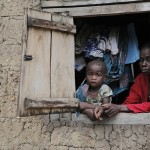Case Studies on Contemporary Social Issues book by Barry Hewlett and Bonnie Hewlett. In this case study, readers will embark on an improbable journey through the heart of Africa to discover how indigenous people cope with the rapid-killing Ebola virus. The Hewletts are the first anthropologists ever invited by the World Health Organization to join a medical intervention team and assist in efforts to control an Ebola outbreak. Their account addresses political, structural, psychological, and cultural factors, along with conventional intervention protocols as problematic to achieving
Continue reading →
Haemorrhagic fevers have, par excellence, captured popular and media imagination as deadly diseases to come ‘out of Africa’. Associated with wildlife vectors in forested environments, viral haemorrhagic fevers such as Ebola, Marburg and lassa fever figure high in current concern about so-called ‘emerging infectious diseases’, their hotspots of origin and threat of global spread. Outbreak narratives have justified rapid and sometimes draconian international policy responses and control measures. Yet there is a variety of other ways of framing haemorrhagic fevers. There present different views concerning
Continue reading →
Viruses that cause haemorrhagic fevers have been popularized by the media as fierce predators that threaten to devastate global populations. Professor Melissa Leach says there is much to learn from combining local and scientific knowledge in dealing with these deadly pathogens.
As the worst Ebola epidemic on record shows no signs of abating in West Africa, fear and ignorance are increasingly said to be playing a role in its continued spread. Meanwhile, local practices such as the consumption of bushmeat and deforestation are the go-to explanations for the epidemic’s underlying causes. However, decades of anthropological research in the region by STEPS Centre and Institute of Development Studies (IDS) researchers, indicates not only that this picture is an over-simplification, but that disease control policies based on these ideas may be unhelpful.



